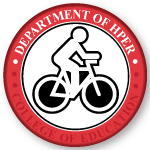Author ORCID Identifier
Olagoke - https://orcid.org/0000-0003-0271-4069
Document Type
Article
Publication Date
12-2-2021
Publication Title
Human Vaccines & Immunotherapeutics
Volume
17
Issue
12
First Page
5433
Last Page
5438
Abstract
Despite the availability of the human papillomavirus (HPV) vaccine, uptake has been sub-optimal among certain religious groups. Psychosocial factors (threat appraisal, coping appraisal, and attitudes) have been identified as independent determinants of HPV vaccination. However, their interdependent effects have not been tested. We examined the interdependency of these psychosocial factors in predicting HPV vaccination intention among Christian parents of unvaccinated adolescents (using a theory-driven conceptual model). A cross-sectional study of 342 participants showed that perceived self-efficacy (β = 0.2, 0.11–0.29, p = <0.0001) and perceived response efficacy of HPV vaccine (β = 0.65, 0.53–0.77. p < .0001) were positively associated with vaccination intention. Our mediation analysis (using the Preachers and Hayes’ approach) shows that attitudes toward HPV vaccination mediated 59% of the relationship between perceived self-efficacy to vaccinate child and HPV vaccination intention; and 61% of the relationship between perceived response efficacy of HPV vaccine and HPV vaccination intention. Attitudes may be the psychosocial factor that drives the effects of coping appraisal. Therefore, designing an attitude-based intervention to address religious barrier beliefs among Christian parents may nullify the impact of low self-efficacy and response efficacy on HPV vaccination.
Recommended Citation
Olagoke, A., Caskey, R., Floyd, B., Hebert-Beirne, J., Boyd, A.D, Molina, Y (2021). The interdependent roles of the psychosocial predictors of human papillomavirus vaccination among Christian parents of unvaccinated adolescents. Human Vaccines & Immunotherapeutics DOI: 10.1080/21645515.2021.2006027
Creative Commons License

This work is licensed under a Creative Commons Attribution-Noncommercial-No Derivative Works 4.0 License.


Comments
This is an Accepted Manuscript of an article published by Taylor & Francis in [Human Vaccines & Immunotherapeutic] on [December 2, 2021], available online: https://doi.org/10.1080/21645515.2021.2006027